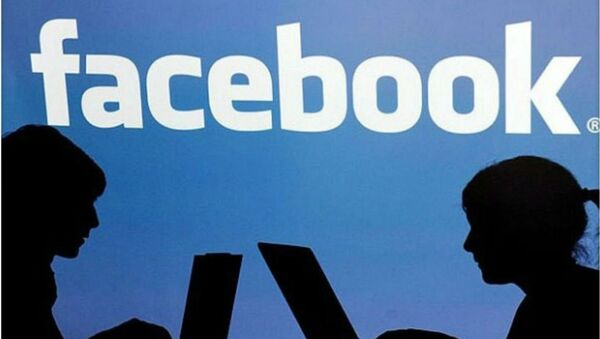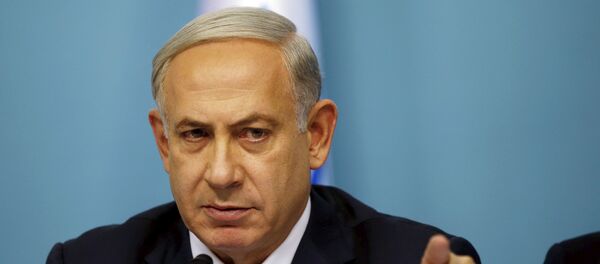After widespread complaint, the social network restored access to most of the pages and apologized for the incident, claiming that it was an accident.
This is not the only case of bans and blocks placed on pro-Palestinian speech on Facebook, however, in the wake of consistent criticism that the social media giant is "biased" toward Israel. Every time a pro-Palestinian user is blocked, Facebook is accused of bias and is bombarded with statements claiming that the bans are a result of a secret pro-Israel policy.
This was was the case for Marwa Osman, a pro-Palestinian political commentator banned from the social network following a post in which she expressed her opinion that Israel is not an actual state and that Hezbollah is not a terrorist organization. Speaking to Radio Sputnik's Brian Becker, Osman claimed that Israel is "afraid of the impact of social media," and that Facebook is acting on Jerusalem's behalf. Osman said that Israel resorted to "censorship" because information posted on social media could "widen [the] western world's eyes to atrocities committed [by Israel]."
There is a problem with this line of thought.
In July, The Jerusalem Post published an exhaustive investigative article claiming the opposite, that Facebook is, in fact, anti-Israel.
The Jerusalem Post's article included a story of the removal of a pro-Israeli image posted on a public Facebook page. Administrators for The Israel Video Network, the public Facebook page in question, contacted Dov Lipman, a DC native and former member of the Israeli parliament.
"Lipman created a pro-Palestine Facebook page and posted an image nearly identical to the pro-Israel one," the article reads. "He then reported the pro-Palestine image to Facebook, in an experiment to see if the company would again consider the rhetoric offensive."
The social media giant offered another apology: "A member of our team accidentally removed something you posted on Facebook. This was a mistake, and we sincerely apologize for this error. We've since restored the content, and you should now be able to see it."
The Algemeiner in July told a story of a "coordinated attack" by pro-Palestinian activists that resulted in a pro-Israeli page being banned. There are additional online examples from both sides of the conflict, all sharing two common traits: accusing Facebook of a "bias," and an apparent ignorance of the voice on the other side of the conflict.
It appears that both sides suffer from what appears to be capricious Facebook moderation protocols. Both sides are equally quick to claim this inconsistent moderation is a result of a much wider policy bias, connecting individual cases to some elusive system, either ignoring, or being totally unaware, of the identical argument being propounded by the other side.
Officially, Facebook appropriately seeks to limit posts that could be considered an "incitement of violence," and aspects of online conversations on both sides of the Israeli-Palestinian conflict fit that definition. But it is unlikely that the social media giant openly supports one side and suppresses another, and corresponding Google searches return many public Facebook pages that support either of the two sides.
Having a global platform with which to express one's sentiments is a great leap forward for humanity, but it takes a deeper human awareness to rise above one's immediate experience and see that the other side is suffering, as well.




